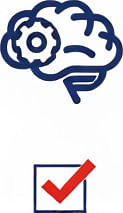Strategies for Effective Collaboration with ADHD
 by Verner Mayer
by Verner Mayer
Discover practical ways to thrive in team settings despite ADHD challenges. This article explores techniques to boost focus, communication, and productivity, empowering adults and young adults to succeed together.

Many adults and young adults with ADHD find group projects or team meetings difficult due to distractions and difficulty staying on track. These experiences can feel frustrating, but simple strategies can make a big difference. For instance, collaboration becomes easier with the right approaches.
One key area is preparing ahead. Before a team session, take a moment to review the agenda. This helps reduce surprises and allows you to contribute more effectively. Another helpful step is setting personal goals for the meeting, such as focusing on one task at a time.
In practice, using tools like timers can aid concentration. For example, work in short bursts to maintain energy during discussions. This method supports better engagement without overwhelming the mind.
Communication plays a vital role as well. Speak up about your needs in a team, like asking for breaks or clearer instructions. This fosters an inclusive environment where everyone feels valued.
Here are some specific techniques to try:
- Break tasks into smaller steps: Divide group assignments into manageable parts to avoid feeling scattered.
- Use visual aids: Notes or simple drawings can help keep ideas organized during brainstorming.
- Pair with a buddy: Work alongside one person for accountability, making it simpler to stay involved.
- Schedule regular check-ins: Short updates with the team can prevent things from getting off course.
Over time, these habits build confidence and reduce stress. Remember, it's okay to have ups and downs; progress comes from consistent effort. By applying these ideas, individuals with ADHD can not only participate but also lead in collaborative efforts.
Building routines around work sessions is another way to improve outcomes. For example, start each meeting with a quick personal check-in to gauge readiness. This promotes a supportive atmosphere.
In the end, embracing these strategies leads to more fulfilling experiences. With patience and practice, collaborative work can become a strength rather than a challenge for those with ADHD.
